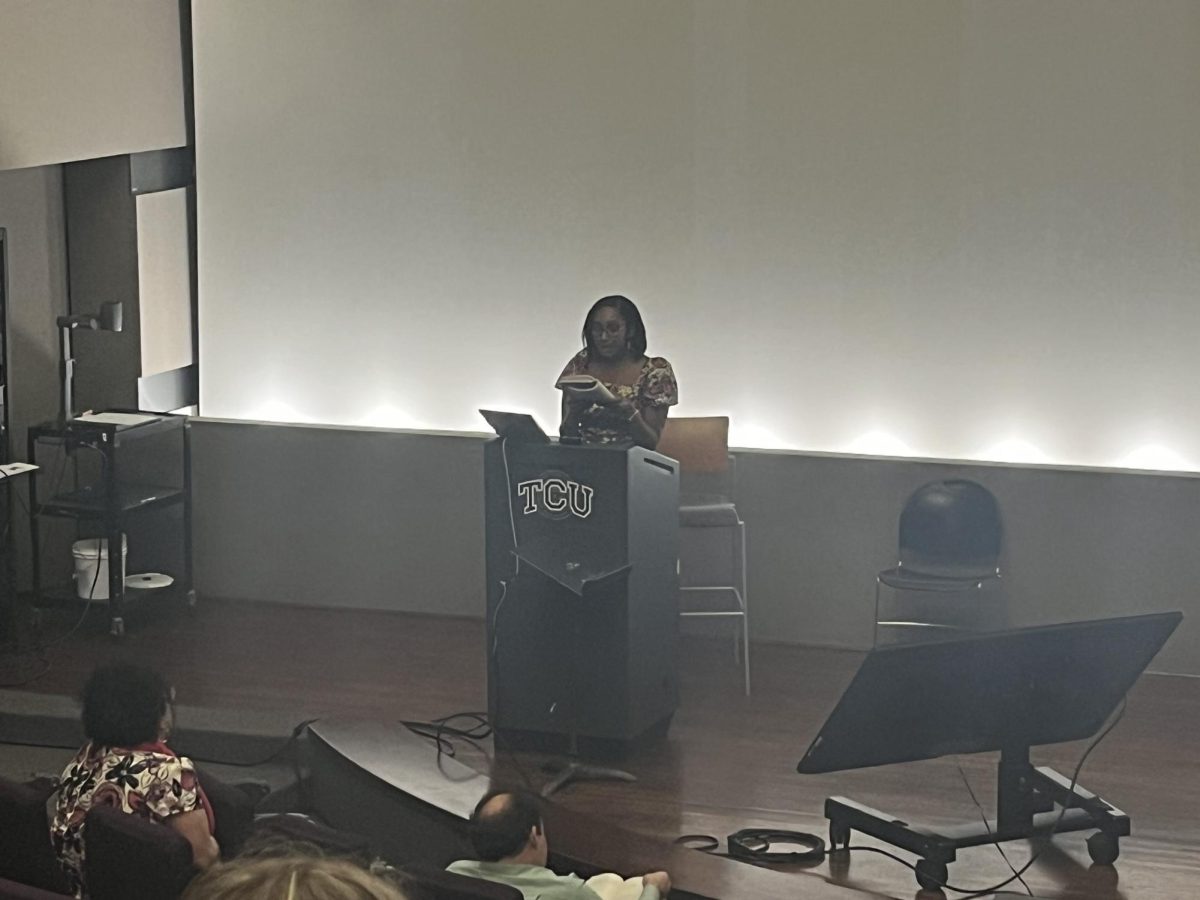TCU Athletics has avoided a trend that has plagued college football in recent years: football programs across the country are reporting a drop in football ticket sales.
However, capitalizing on a new conference and a new stadium, Horned Frog season ticket sales have continued to grow. In 2012, TCU sold 31,282 season tickets, up almost 18,000 tickets since 2008.
For the 2013 season, wireless Internet was installed in Amon G. Carter Stadium. Scott Kull, associate athletics director for external relations, said he hopes the move will keep fans that buy tickets engaged while inside the stadium.
“It’s a totally different deal for this program now with the BCS games, the Big 12, a new stadium. We’ve sold the tickets. Now we have to keep fans engaged with the video board, their smartphone and technology so they’ll continue to come,” Kull said. “It helps your game day environment when fans can use their phones even inside the stadium.”
Fans should be able to access the Wi-Fi network no matter where they are located within the stadium.
The decline in college football ticket sales is ongoing as programs try to counter their biggest rival, the living room. Last season, the Chattanooga Times Free Press reported that 9 of 14 teams in the Southeastern Conference – the nation’s most profitable conference – saw a decline in home attendance.
On the opposite end of the spectrum, TCU is now pushing 32,000 in season ticket sales, an all-time high. Kull said the university must continually give fans a new in-game experience in order to sustain such growth.
“We’ve learned that if you’re implementing current technology, you’re behind,” Kull said. “You’ve got to stay ahead of the curve, and you’ve got to constantly be reassessing how best to give fans the experience they desire.”
“It’s all about fan engagement. We wanted to try to be ahead of the curve, and we feel like we are. We had some options to do new things as technology took shape.”
With increased ticket sales, the tailgating scene outside the stadium has also expanded. While some at the university have expressed concern that fans come to tailgate but never enter the stadium, Kull said that is not something that worries the athletics department.
“We’re okay with that. Most fans enter the stadium and, while they may not stay the entire time, they are still coming and experiencing the TCU brand,” he said.
“At the end of the day, we have to continue to give fans a reason to come back to the stadium and come inside the stadium,” Kull said. “We are fortunate to have such a demand for tickets, but we will have to continue to use our amenities to engage a community that has so many other entertainment options.”
Sean Conner, director of ticket operations, said the university is starting to court general college football fans in the Metroplex who are not able to attend games at their own alma mater each weekend.
“Because they can’t make it back to Austin or Norman or Baton Rouge – wherever they may have gone to school – they now see TCU as a quality product in their back yard that they say ‘This is my opportunity to continue my enjoyment of college athletics,’” he said.
Jack Hesselbrock, associate athletic director for internal relations, said the university works hard to keep fans engaged.
“To come to this stadium – between the spirit groups, band, Frog alley, the Frog horn, the fireworks, the “fast pass” lane…the reaction I always get is that’s a lot of fun in there,” Hesselbrock said.
Other stadium innovations include a “fast pass“ line that offers fans a way to purchase items from the concession stand without the wait through use of an app. The “fast pass” is another tool to get fans interacting with the stadium via their smartphone.
Wireless Internet, the “fast pass” app and stadium atmosphere aside, Kull said the Frogs have to continue to win games in order to retain entertainment value in the competitive Dallas-Fort Worth market.
“There are certainly even more things that we can do,” he said. “But at the end of the day, we have to continue to win football games to be relevant in this market. You’re going to have ups and downs.”
College football will continue to battle the comfort of the living room, with chips on the table, surround sound and a bathroom with no wait, but Kull said he believes the university has the forward-thinking perspective necessary to handle that trend.
Tickets to Horned Frog football games weren’t always in demand, and he said he sees the university’s success as a compelling come-from-behind story.
“You know, we’ve always been the little engine that could,” Kull said.
When the Horned Frogs opened the season at the Cowboys Classic against Louisiana State University, many of the fans that walked through the gates at AT&T Stadium were adorned in purple. Just five years ago, TCU could not have participated in a game that demanded such a strong turnout from fans.
These days, however, the athletics department is a significant revenue generator for the university, and behind that deep purple is a lot of green.






